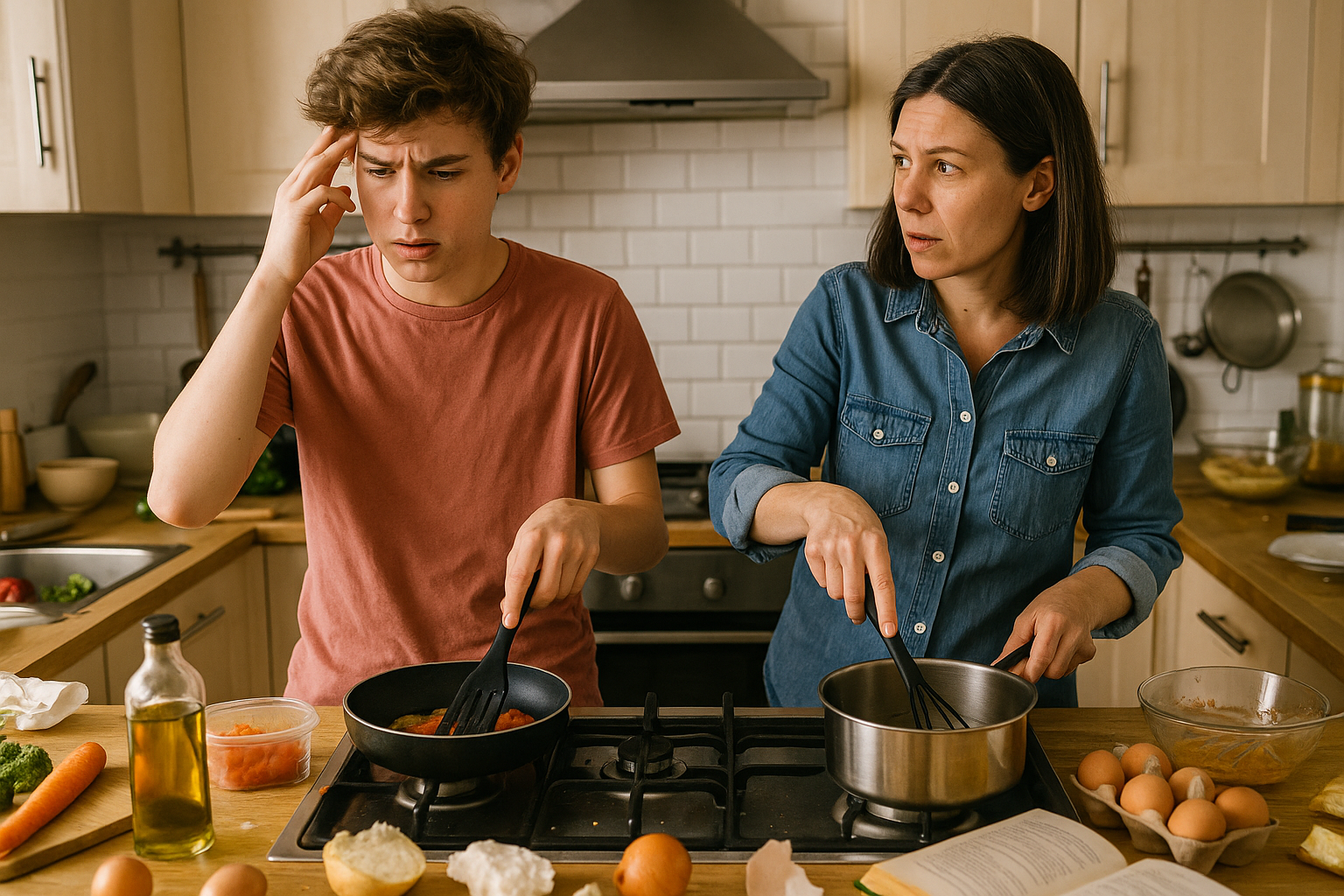How Executive Functions Pose a Challenge for People with ADHD
Cooking is an enjoyable and creative activity, but it can become a significant challenge for people with Attention Deficit Hyperactivity Disorder (ADHD). This is because cooking intensely demands executive functions—the very cognitive abilities that are often impaired in individuals with ADHD.
Executive functions are cognitive skills that help us plan, prioritize tasks, sustain attention, and manage multiple activities simultaneously. For those with ADHD, these processes are frequently compromised, turning seemingly simple activities into daunting tasks. Cooking is clearly an example of such a scenario.
Difficulty Managing Priorities
One major challenge faced by individuals with ADHD is managing priorities. Cooking requires numerous actions to be executed in the correct sequence to achieve the desired outcome. Something as straightforward as knowing exactly when to add ingredients or adjusting the oven temperature can become complex for someone with ADHD.
Often, individuals with ADHD will focus on a task that immediately grabs their attention or seems more enjoyable at the moment, completely neglecting other important steps. This might result in leaving the stove on, burning food, or overcooking certain ingredients.
In my personal experience, my son, who loves cooking, frequently struggles with prioritization. I’ve lost count of how many times he has left the stove on after finishing cooking. He becomes so absorbed in the immediate enjoyment of the activity that he simply forgets to turn off the stove, which is as crucial as starting the recipe.
Difficulty with Multitasking
Cooking involves managing multiple actions simultaneously. While a sauce is thickening, you might need to chop vegetables or monitor the cooking time for rice. This multitasking, common in any kitchen, can be especially challenging for individuals with ADHD.
People with ADHD often have difficulty dividing their attention, leading to frequent mistakes, stress, and frustration. Feeling overwhelmed is common and can make the pleasurable experience of cooking exhausting and frustrating.
Watching my son cook, I’ve observed his struggle to handle multiple tasks at once. If he’s focused on chopping ingredients, he often forgets about something on the stove or in the oven. As a result, he prefers doing one task at a time, even if this means longer cooking times or results that don’t exactly match the intended recipe. What matters most to him is cooking without feeling lost or excessively stressed.
Difficulty in Planning
Planning is another significant challenge due to impaired executive functions in ADHD. Planning involves clearly defining steps, checking ingredients beforehand, following instructions, and anticipating potential issues. Each of these steps demands sustained attention and mental organization, which can be incredibly challenging for someone with ADHD.
It’s common for individuals with ADHD to simplify or alter recipes. My son frequently avoids complicated recipes or adapts ingredients according to what he finds easier or quicker, even if the final result differs significantly from the original. Interestingly, even when the flavor or texture changes, he never minds much. For him, simply cooking is gratifying enough.
How to Make Cooking Easier for Individuals with ADHD
Despite these challenges, cooking can and should remain a pleasurable activity for those with ADHD. Several simple strategies can significantly enhance their cooking experience, such as:
- Using timers: Helps remember specific cooking times and prevents leaving pots unattended on the stove.
- Breaking down recipes into short, clear steps: Makes comprehension and execution easier, reducing mental overload.
- Preparing ingredients in advance: Reduces the need for multitasking during cooking.
- Keeping the kitchen organized: Minimizes visual distractions and helps establish a routine to maintain focus and concentration.
Conclusion
Cooking with ADHD requires adaptation, patience, and supportive strategies for impaired executive functions. Despite the natural challenges posed by this condition, there’s no reason to give up this valuable activity that contributes significantly to independence and self-esteem.
My son’s experience shows that despite frequent forgetfulness and alterations in recipes, the joy and satisfaction derived from cooking are immense. Simple adjustments to the environment and execution strategies can transform the kitchen into a welcoming, fun, and inclusive space for individuals with ADHD.
Encouraging enjoyment in cooking and celebrating outcomes—regardless of their perfection—is essential in supporting individuals with ADHD to achieve greater autonomy, personal satisfaction, and improved quality of life.
